Disclaimer For educational purposes only. Do not use as medical advice
<strong>About</strong><strong>Plants</strong><strong>Chinese Medicine</strong><strong>Caution</strong>
| Health Benefits |
| For: Cough • Phlegm • Anxiety • Depression • Gastrointestinal disorders • Abdominal distention • Poor appetite • Asthma • Headache • Vomiting |
| Attributes: GABA-ergic • Sedative • Cannabimimetic • Antioxidant • Anticoagulant • Antidepressant • Anti-inflammatory • Antibiotic • Antispasmodic • Antitumor • Antimicrobial |
| Research (sample) |
| Articles:
|
Constituents:
Magnolol • Honokiol |
| Photos (Click to enlarge) |
|
|
| Fun Facts |
Other Names: Chuan Po • Him champa (Hindi) • vỏ cây mộc lan (Vietnamese) • écorce de magnolia (French)
Plant Family: Magnoliaceae |
| Magnolia Officinalis is very similar to Magnolia Obovata, which is largely grown in Japan. Both provide similar constituents and effects in herbal medicine.While magnolia bark is popular in Chinese medicine, the flowers and leaves are also used in different parts of the world.
Magnolia flowers are edible. In fact, Pickled magnolia flower is popular in England. Leaves can be used in tea or soup. It contains same pytochemicals as the bark, but much weaker in potency. Magnolia grandiflora, and Magnolia virginiana are more commonly found in the United States. |
| Species |
| Well know species of magnolias are: Magnolia Officinalis • Magnolia Obovata • Magnolia Grandiflora • Magnolia Soulangiana • Magnolia stellata • Magnolia Loebneri |
| Magnoliae officinalis is NOT in the USDA Plant Database. |
|
USA: Magnoliae officinalis can be found in multiple states. Native + Introduced USDA Zones: 7-10.
Native: China
Habitats: Hills, forests, alpine, 300m<elevation<1500m
|
| Properties, Actions, Indications, etc. Category: Transform Dampness |
| English: Magnolia Bark Pinyin: Hou Po Pharmaceutical: Cortex Magnoliae Officinalis |
| Organs: Large Intestine • Lung • Spleen • Stomach Temperature: Warm |
| Taste: Bitter • Pungent• Aromatic Toxicity: |
| Patterns: Spleen dampness • Stomach dampness • Food stagnation • Qi stagnation |
| Actions: Transform spleen dampness • Transform stomach dampness • Clear food stagnation • Transform Phlegm • Clear qi stagnation |
| Indications: Cough • Phlegm • Stomach ache • Spleen dampness • Stomach dampness • Diarrhea • Vomiting |
| Contraindications: Anticoagulant drugs • Antidepressant drugs |
| Typical Dosage: 3g to 9g Guidelines |
| Parts Used: Bark |
| Other: Pairs with Cang Zhu |
| Combine With |
Purpose |
| Cang Zhu + Chen Pi |
Excessive stomach acid: epigastrice distention, belching, nausea, vomiting, acid regurgitation |
| Xing Ren + Ma Huang |
Chest congestion with coughing, wheezing, heavy phlegm |
| Da Huang + Zhi shi |
Constipation |
| Zhi Ke |
Qi stagnation, food stagnation, epigastric discomfort, bloating and abdominal distention |
| Ren Shen + Gan Cao |
Deficiency cold with abdominal distention |
| Formulas with Hou Po |
| Ban Xia Hou Po Tang • Bao Chan Wu You Fang • Bu Huan Jin Zheng Qi San • Da Cheng Qi Tang • Da Yuan Yin • Gui zhi Jia Hou Po Xing Zi Tang • Hou Po Wen Zhong Tang • Huang Long Tang • Hou Po Xia Ling Tang • Huo Xiang Zheng Qi San • Ju He Wan • Lian Po Yin • Ma Zi Ren Wan • Ping Wei San • San Ren Tang • Shi Pi Yin • Si Wu Ma Zi Ren Wan • Su Zi Jiang Qi Tang • Wei Ling Tang • Wu Ji San • Xiang Sha Yang Wei Tang • Xiang Ru San • Xiao Cheng Qi Tang • Yi Jia Jian Zheng Qi San • Zhi Shi Gua Lou Gui Zhi tang • Zhi Shi Xiao Pi Wan • Zhi Shi Xie Bai Gui Zhi Tang • Zhi Zi Hou Po Tang • Zhong Man Fen Xiao Wan |
| Alert |
Be cautions with all medicine.
- The magnolol in Hou Po is a mild anticoagulant. Use caution with people taking antiplatelet or anticoagulant drugs.
|
| Potential Drug Interactions |
|
Herbal medicine may interact negatively with pharma drugs and other herbs. Examples below:
Herbs: ♦ Hou Po antagonizes Han Shui Shi and Ze Xie ♦Anticoagulants: American Ginseng, Arnica, Rou Gui, Chamomile, Dan Shen, Dang Gui, Deertongue, Sheng Jiang, Goji Berry, Ginko Nutes, Notoginseng, Peach Kernel, Hong Hua, Sweet Clover, Vanilla Grass
Pharma Drugs:♦ Anticoagulants: asprin , clopidogrel (Plavix) , Coumadin , dipyridamole , enoxaparin , Heparin
|
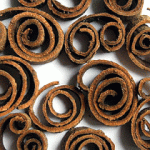
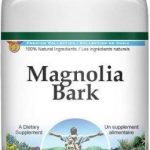
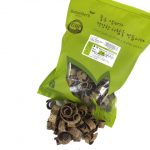

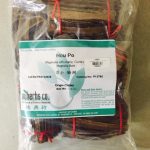
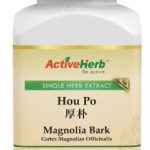
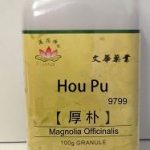
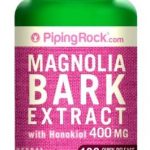
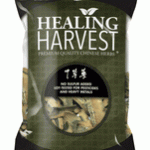

0 Comments